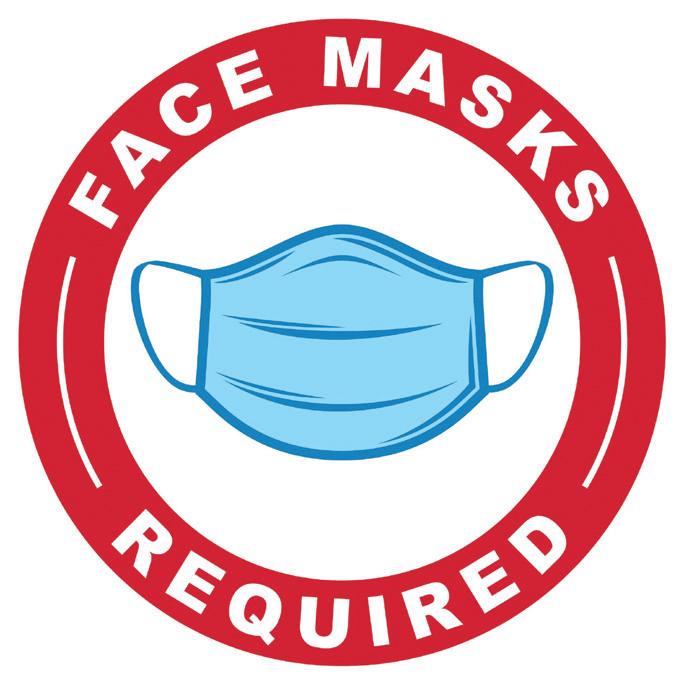
3 minute read
Editor’s
Unitum Mandamus
It seems that Americans, at least those who need one, have found a new enemy: mandates. Having lived their lives under a myriad of mandates, from federal, state and local governments, school boards, employers and private associations, it is deemed repulsive to have to adhere to obligations for the benefit of members, employees, students and the body politic generally. There has, of course, always been in the independent American spirit a rebellious reaction to being told to do or not to do something. “You’re not the boss of me!” is a declaration that any parent has heard and that, perhaps in more mature language, most of us repeat into adulthood. And sometimes rightly so. We should oppose constraints that are not from proper authority — that which we democratically have a hand in selecting or from which we have the freedom to separate ourselves. The child quickly learns that her parent really is her boss. The employee knows who his boss is by corporate definition. The child often threatens to “run away.” The employee has the right to quit at the end of his contractual period, if not abruptly.
Advertisement
As citizens, we do have input in the selection of those who mandate, but in our democracy, our personal choice is rejected about half the time. But the mandates still come (or fail to leave.) Quitting, or running away, is a measure taken by a few, opting for other systems and collections of mandates. The costs and risks of doing so keep most of us, however, in our place, disgruntled as we may be.
The new current wrinkle, that raises concern, is that such large numbers have chosen to take the “You’re not the boss of me!” stance against mandates from legally constituted authorities regarding fairly inoffensive measures designed for the extreme benefit of everyone. Ignoring seat belt requirements, no-smoking rules, minimum driving and drinking ages, education expectations, and yes, inoculation requirements of long standing, and being fed false representations from politicians, media and some spiritual leaders, a significant portion—enough to make difference—of our co-patriots have chosen to draw the line at the simple act of wearing a protective mask and getting a science-proven vaccine that, if applied to a sufficient percentage of the population, would stave off a pandemic that has already taken the lives of almost 1,000,000 of us.
Editorial
Who is “the boss of us” in an ICU?
Undemocratic mandates and civil liberties are key themes in articles in this issue by Doris Marie Provine and Linda Stryker. In an autobiographical commentary on Jim Crowism and a career in civil rights law, Provine describes her intellectual and idealistic progression from an early life in segregated society. Stryker reviews the history of the Eugenics movement and its attempts to thwart personal liberties for a presumed but misguided societal benefit. The theme of social justice is visited more viscerally in David Kader’s poem.
Billie Enz favors us with a written version of her public lecture on memory health and physiology. In their article on primary medical care, Eric vanSonnenberg and his associate, Zach Sitton, provide a history of General Practice in America and its evolution into Family Medicine. Eric recalls for us the role his father played as a GP in their community.
Bill Verdini’s leadership contributions to the Emeritus College and several other organizations paint the portrait of a retirement devoted to service. Christine Marin recognizes another who served: Apache educator, Catherine Steele.
Ann Ludwig reviews her career as a dancer and choreographer in our first art feature to highlight the performing arts. But you can have a performance of your own by reading with a friend JoAnn Tongret’s one act play about a burglar and a not very watchful neighbor.
Tongret also brings smiles of recognition in her essay about the beeps in our lives, and you will continue to be amused by this issue’s offering of Ironies and Epiphanies.
We feature our inaugural “Revisiting the Classics” review with Ernie Stech’s impressions of Remarque’s “All Quiet on the Western Front.” Readers are encouraged to supply reflective reviews of their own favorites. Also reviewed in Déjà vu is the book/movie pairing, “Nomadland.” Thought provoking poetry and prose are provided by Shannon Perry, Charles Brownson, Babs Gordon and Gus Edwards. Our hope is that you find this issue to be enjoyable and inspirational. These are emeritus voices. You are invited to contribute your own.






